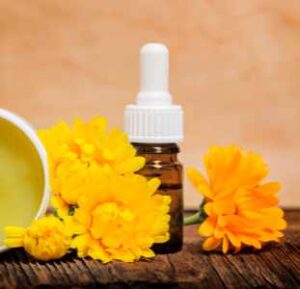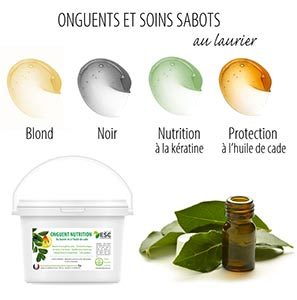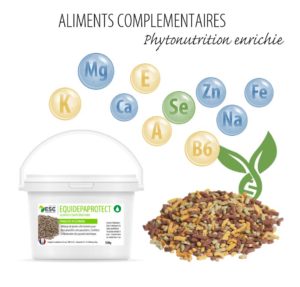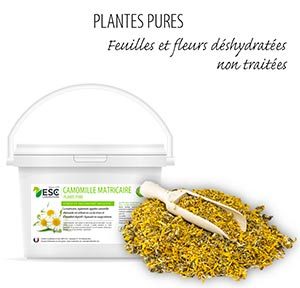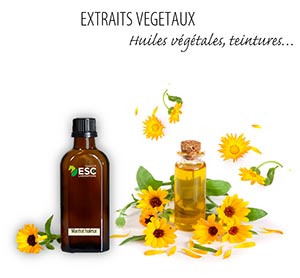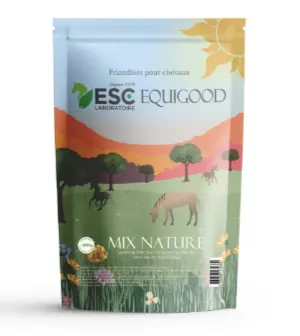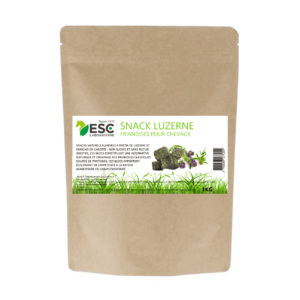Stomach ulcers are a very common pathology in horses. Indeed, studies show that 90% of horses one or more ulcers in their lifetime.
Also known as equine gastric ulceration syndrome, they can develop due to poor nutrition, stress, excessive workload or environmental factors.
The main problem with The ulcer is that it tends to recur. It is therefore important to treat him as quickly as possible and to evacuate his main causes, in particular by changing the feeding of his horse.
There are many ways of naturally reducing the risks of ulcers and support the intestinal health of his horse. Among them are alfalfa, which is increasingly presented by specialists as a natural strategy to prevent the development of ulcers in horses.
But what is it really and how to give alfalfa to his horse for promote its digestion and proper functioning of its intestines. You are told everything in this complete guide.
Understanding horse ulcers
Gastric ulcers are more or less deep and widespread wounds that may affect both types of mucous membrane of the horse's stomach, i.e. squamous mucosa and glandular mucosa. Often painful, they tend to develop due to excess hydrochloric acid (continuously produced by the stomach) which will cause cell erosion and damage the stomach wall.
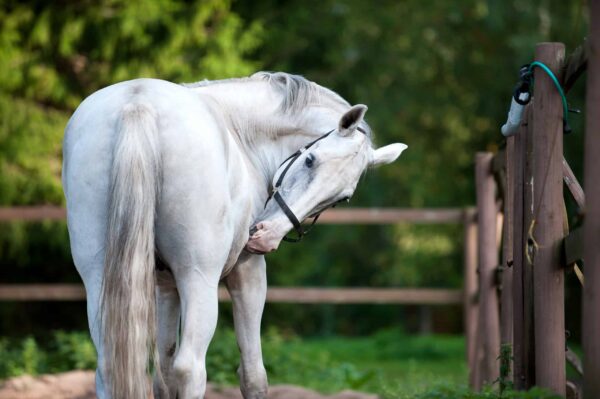
In general, ulcers develop mainly in the squamous stomach region. 80% of ulcers are in this area which does not produce mucus or bicarbonates that protect its walls.
Horses rely on their diet and saliva production to replace mucus and tame the stomach. However, when their stomach is empty, they fail to protect themselves effectively, which increases the risk of gastric ulcers. The exposure of the sqamous mucosa to the acid content of the stomach, especially when eating too much concetres, is another cause of ulceration.
The impact of ulcers on horse health and well-being
In addition to causing gastric discomfort, ulcers can have a negative impact on your horse's overall health and well-being. Indeed, this condition may be leading to significant weight loss, even malnutrition.
The horse, whose digestion is difficult or painful will lose interest in food, which may lead to lack of energy, a dull coat and poor performance. Other side effects of stomach ulcers include gnashing teeth and colic.
In addition, even if there are different solutions and effective treatments for ulcers, These are not without side effects on the horse. In addition to the fact that they are generally quite expensive, the recidivism rate remains high. It is therefore preferable to prevent or minimize as much as possible the risks of equine ulcers, in order to avoid their formation, or at least limit their severity.
The benefits of alfalfa in preventing and relieving equine ulcers
Texas A&M Researchers assessed incidence of stomach ulcers in horses fed with granulated cereal concentrate, coastal grass hay and alfalfa. They found that horses fed grass hay showed a significant increase in ulcer severity during the study period compared to alfalfa-fed horses.
The composition of alfalfa seems to help in reduce the incidence and severity of ulcers. It is richer in protein (the protein level in alfalfa may vary from 15 to 22%) and calcium than most grass hay, both acting as buffers in the stomach, increasing the pH level.
Moreover, alfalfa is richer in structural carbohydrates called lignins, which are also considered beneficial to the intestinal health of horses. Other research has shown that hay-fed and alfalfa-fed horses have significantly higher gastric pH for five hours after meals and less or less severe gastric ulcers than bromine-fed horses. Increased pH of the gastric content reduces irritation of sensitive epidermoid gastric tissue or existing gastric ulcers.
The precautions to be taken with alfalfa
Not all stables offer alfalfa, and it may not suit all horses because it is more caloric than most grass hay. Giving too much alfalfa may result in a diet with very high levels of raw protein and calcium, which may also be inappropriate for some horses.
The researchers recommended to give 500 grams of alfalfa horses weighing more than 500 kg after a meal of cereals, because the diet of cereals, especially cereals with a higher level of non-structural carbohydrates, lowers the gastric pH, making the stomach more acidic.
A recent study conducted by researchers from Leipzig also showed that the size of alfalfa particles played a significant role prevention and relief of gastric ulcers. They found that after feeding with minced alfalfa, the horses showed more damage to the gastric mucosa. It can therefore be inferred that the sharp edge structure of ground alfalfa is not recommended for the gastric mucosa. It may cause mechanical irritation and therefore damage to the stomach.
How to give her horse alfalfa?
The way you give alfalfa to your horse will therefore have a direct impact on its gastric benefits. For example, horses should be fed with dried alfalfa cubes, as they increase chewing time and reduce transit time. Thus, the risk of obstruction is lower and it promotes salivary production, reducing PH and preventing gastric ulcers.
Even better, when cubes are slightly humidified, they also allow to rehydrate animals that sweat or do not always have water available. With alfalfa cubes you also reduce MS losses and dust and mould contamination (a considerable advantage for horses subject to emphysema)
For horses that have lost weight or muscle tone (due to old age or disease), alfalfa cubes can boost their calorie and protein intake without increasing the amount of their ration (which can lead to changes in their eating behaviour or a disruption of their digestive system).
Photo above our alfalfa-based horse candy
At ESC, we offer several nutritional supplements enriched with alfalfa to promote the good digestive health of your horse. For example, you can opt for:
- Natural snacks Made from alfalfa and enriched with carrots. Unsweetened and without any additives, these blocks are a natural alternative to classic treats and a source of protein excellence.
- Equipment nature, 100% natural treat, without added sugar or artificial flavour. Very practical, these sweets enriched with but, carrot and alfalfa, are easy to take in the mouth and appetizing.


